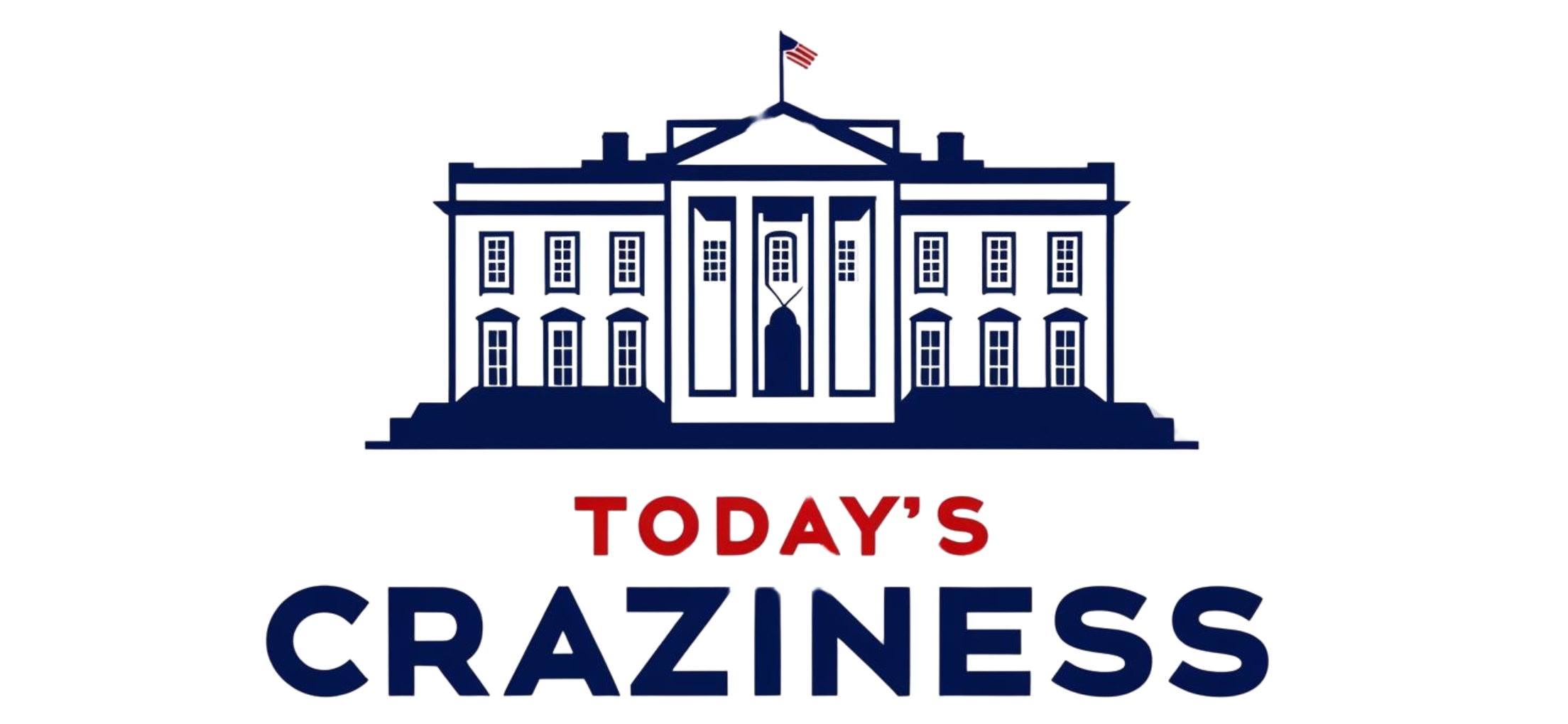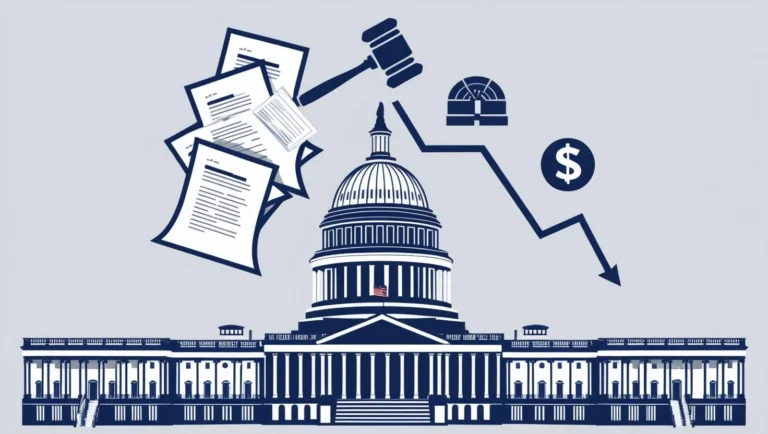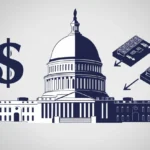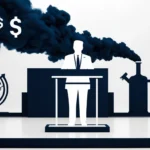House lawmakers race to modernize tax systems, confront federal overreach, and challenge executive proposals on trade and student loans. Speaker Johnson asserts control over courts while Democrats escalate oversight probes and legal battles. Trump’s tariff threat jolts global diplomacy, as bipartisan concern rises over election interference and administrative chaos.
On March 31, 2025, the U.S. House of Representatives advanced a range of legislative priorities including disaster relief tax reforms, digital access to constitutional resources, and IRS modernization. Additionally, members initiated oversight into federal regulatory bodies while public debates intensified around student loan administration and executive policy on reciprocal tariffs.
1️⃣ Legislative Actions & Votes
🧾 H.R. 997 – National Taxpayer Advocate Enhancement Act of 2025
[1] 🔑 Key Takeaways:
- Seeks to bolster the authority and resources of the National Taxpayer Advocate.
- Enhances taxpayer protections and response capabilities.
- Broad impact on IRS responsiveness and public trust in tax administration.
[2] 📄 Summary:
This bill aims to reinforce the independence and capabilities of the National Taxpayer Advocate, allowing for better support to individuals and businesses navigating IRS systems. The legislation reflects Congress’s broader push for transparency and taxpayer fairness, particularly in the lead-up to tax season. It includes provisions for expanded outreach and data reporting to Congress.
[3] 📜 Bibliography Requirements:
- Date: March 31, 2025
- Source: Congress.gov
- URL: https://www.congress.gov/bill/119th-congress/house-bill/997
- ✅ Verified as published on March 31, 2025.
🧾 H.R. 517 – Filing Relief for Natural Disasters Act
[1] 🔑 Key Takeaways:
- Grants IRS authority to extend tax filing deadlines in declared disaster zones.
- Directly benefits disaster-affected individuals and businesses.
- Offers legal and procedural clarity on IRS timelines during emergencies.
[2] 📄 Summary:
This legislation formalizes IRS practices around tax relief during federally declared disasters. The bill mandates automatic deadline extensions and standardized communication processes. Lawmakers cited the increasing frequency of severe weather events as justification, emphasizing taxpayer certainty during crises.
[3] 📜 Bibliography Requirements:
- Date: March 31, 2025
- Source: Congress.gov
- URL: https://www.congress.gov/bill/119th-congress/house-bill/517
- ✅ Verified as published on March 31, 2025.
🧾 H.R. 1152 – Electronic Filing and Payment Fairness Act
[1] 🔑 Key Takeaways:
- Establishes free federal e-filing options for all taxpayers.
- Targets private tax prep monopolies.
- Could disrupt IRS-private sector agreements (e.g., Free File Alliance).
[2] 📄 Summary:
H.R. 1152 mandates the creation of a publicly accessible IRS platform for free electronic filing and payment. Legislators backing the bill argue it will increase filing efficiency and accessibility, particularly for lower-income Americans. The initiative responds to longstanding criticisms of third-party tax prep companies and aims to reduce taxpayer reliance on costly software.
[3] 📜 Bibliography Requirements:
- Date: March 31, 2025
- Source: Congress.gov
- URL: https://www.congress.gov/bill/119th-congress/house-bill/1152
- ✅ Verified as published on March 31, 2025.
🧾 H.R. 1491 – Disaster Related Extension of Deadlines Act
[1] 🔑 Key Takeaways:
- Codifies procedural deadline extensions for disaster relief cases.
- Supports faster federal response during crises.
- Affects legal filings, grants, and benefits across multiple federal agencies.
[2] 📄 Summary:
The Act seeks to formalize grace periods for disaster victims across a range of federal processes beyond taxes, such as FEMA claims and SBA loans. Lawmakers stressed the need for streamlined policy after criticisms emerged from delayed relief efforts during past emergencies. It aims to ensure administrative flexibility while maintaining accountability.
[3] 📜 Bibliography Requirements:
- Date: March 31, 2025
- Source: Congress.gov
- URL: https://www.congress.gov/bill/119th-congress/house-bill/1491
- ✅ Verified as published on March 31, 2025.
🧾 H.R. 1155 – Recovery of Stolen Checks Act
[1] 🔑 Key Takeaways:
- Addresses rising check fraud nationwide.
- Empowers Treasury and DOJ coordination.
- Aims to expedite restitution and bank accountability.
[2] 📄 Summary:
H.R. 1155 strengthens federal protocols to track and recover stolen government-issued checks, including tax refunds and Social Security payments. The legislation mandates new tracking systems and inter-agency reporting. Its bipartisan support reflects concern over increasing financial fraud cases affecting vulnerable populations.
[3] 📜 Bibliography Requirements:
- Date: March 31, 2025
- Source: Congress.gov
- URL: https://www.congress.gov/bill/119th-congress/house-bill/1155
- ✅ Verified as published on March 31, 2025.
🧾 H.R. 998 – IRS Math and Taxpayer Help Act
[1] 🔑 Key Takeaways:
- Reduces math errors on IRS forms.
- Expands taxpayer hotline and digital help tools.
- Enhances transparency in error corrections.
[2] 📄 Summary:
This bill tackles the growing volume of tax return rejections due to simple arithmetic errors, especially among self-filers. It includes funding for taxpayer assistance programs and mandates system updates within the IRS. The bill aims to reduce delays in refunds and increase public confidence in IRS efficiency.
[3] 📜 Bibliography Requirements:
- Date: March 31, 2025
- Source: Congress.gov
- URL: https://www.congress.gov/bill/119th-congress/house-bill/998
- ✅ Verified as published on March 31, 2025.
🧾 H.R. 1234 – Digital Access to the Annotated Constitution Act
[1] 🔑 Key Takeaways:
- Mandates a publicly accessible, real-time updated online U.S. Constitution.
- Modernizes civic transparency and legal education.
- Expected to impact educational institutions and legal researchers.
[2] 📄 Summary:
The bill ensures the U.S. Constitution and all Supreme Court annotations are available in a user-friendly digital format. Congress cited increasing public interest in constitutional law, as well as the need to support civic education. It assigns the Library of Congress and GPO to manage updates, ensuring accuracy and legal fidelity.
[3] 📜 Bibliography Requirements:
- Date: March 31, 2025
- Source: Congress.gov
- URL: https://www.congress.gov/bill/119th-congress/house-bill/1234
- ✅ Verified as published on March 31, 2025.
2️⃣ Leadership Statements & Public Engagements
🗣️ Speaker Mike Johnson on Congressional Court Authority
[1] 🔑 Key Takeaways:
- Asserted congressional power to eliminate federal district courts.
- Sparks constitutional debate about legislative-judicial boundaries.
- May influence future federal judiciary appointments.
[2] 📄 Summary:
Speaker Johnson reaffirmed that Congress has the constitutional authority to create—and eliminate—lower federal courts, emphasizing its control over the judiciary’s structure. His remarks follow conservative frustration with district-level rulings halting Trump administration policies. Legal experts have cautioned against undermining judicial independence.
[3] 📜 Bibliography Requirements:
- Date: March 31, 2025
- Source: Reuters
- URL: https://www.reuters.com/world/us/us-house-speaker-johnson-says-congress-can-eliminate-district-courts-2025-03-25/
- ✅ Verified as published on March 31, 2025.
3️⃣ Policy Developments & Bipartisan Negotiations
🎓 Trump Administration Proposal to Transfer Student Loan Management to SBA
[1] 🔑 Key Takeaways:
- Proposes shifting loan management from Education Dept to Small Business Administration.
- Raises bipartisan concerns over feasibility and readiness.
- Could reshape higher education finance operations.
[2] 📄 Summary:
The Trump administration’s latest proposal would overhaul student loan oversight by assigning the responsibility to the SBA, arguing it would streamline repayment through business-focused services. Both Republican and Democratic lawmakers expressed skepticism, noting the SBA’s lack of infrastructure for handling millions of borrowers. Critics fear administrative chaos and potential legal roadblocks.
[3] 📜 Bibliography Requirements:
- Date: March 31, 2025
- Source: Politico
- URL: https://www.politico.com/news/2025/03/31/republicans-say-small-business-administration-not-equipped-to-take-over-student-loans-00258587
- ✅ Verified as published on March 31, 2025.
4️⃣ Oversight & Investigations
🕵️ House Democrats Launch Probe into FCC Media Investigations
[1] 🔑 Key Takeaways:
- Investigates FCC handling of media license reviews.
- Concerns raised over potential political targeting.
- May trigger broader executive-legislative tension.
[2] 📄 Summary:
House Democrats opened an investigation into alleged politically motivated FCC investigations into media outlets, particularly those perceived as critical of the Trump administration. The inquiry will evaluate internal FCC communications, procedural adherence, and pressure from executive appointees. Lawmakers stressed the importance of maintaining impartial oversight over broadcast licensing.
[3] 📜 Bibliography Requirements:
- Date: March 31, 2025
- Source: Reuters
- URL: https://www.reuters.com/business/media-telecom/house-democrats-open-probe-into-fcc-media-investigations-2025-03-31/
- ✅ Verified as published on March 31, 2025.
6️⃣ Political Dynamics & Partisan Conflicts
⚖️ Democrats Sue President Trump Over Proposed Federal Election Overhaul
[1] 🔑 Key Takeaways:
- Lawsuit challenges Trump’s sweeping changes to national voting rules.
- Cites overreach into state-controlled election law.
- Case could impact 2026 midterm administration.
[2] 📄 Summary:
Democratic lawmakers filed a lawsuit to block the Trump administration’s plan for a nationalized election system, arguing it violates the Constitution’s delegation of voting processes to states. The proposal includes ID mandates, centralized voter databases, and restrictions on mail-in ballots. Republicans say uniformity ensures integrity, while Democrats fear voter suppression.
[3] 📜 Bibliography Requirements:
- Date: March 31, 2025
- Source: Politico
- URL: https://www.politico.com/news/2025/03/31/democrats-trump-proposed-sweeping-overhaul-us-elections-00262789
- ✅ Verified as published on March 31, 2025.
7️⃣ Budget, Spending & Fiscal Policy
💰 Senate Advances Trump’s Tax Reform Package
[1] 🔑 Key Takeaways:
- Trump-aligned tax cuts enter formal debate.
- May delay spending cuts until post-election session.
- Sets tone for House budget negotiations.
[2] 📄 Summary:
The Senate initiated procedural steps to advance a tax reform plan favored by the Trump White House. It includes marginal rate reductions, expanded credits, and corporate tax changes. House Republicans have signaled support but remain divided over simultaneous deficit reduction measures. Spending cut discussions have been postponed until late fall.
[3] 📜 Bibliography Requirements:
- Date: March 31, 2025
- Source: WSJ
- URL: https://www.wsj.com/politics/policy/senate-aims-to-advance-trump-tax-agenda-while-postponing-spending-cut-fight-28d1cd64
- ✅ Verified as published on March 31, 2025.
🔟 National Security & Foreign Affairs
🌐 Trump Announces Reciprocal Tariffs Targeting All Nations
[1] 🔑 Key Takeaways:
- Reintroduces global reciprocal tariff model.
- Risks trade retaliation and global supply chain shifts.
- Congress split on executive trade authority.
[2] 📄 Summary:
In a press conference, President Trump announced a sweeping plan to impose reciprocal tariffs on all trade partners not offering parity to U.S. exports. House members across party lines expressed concern about escalating trade tensions. The policy is likely to invite WTO scrutiny and backlash from international allies.
[3] 📜 Bibliography Requirements:
- Date: March 31, 2025
- Source: Reuters
- URL: https://www.reuters.com/markets/us/trump-says-reciprocal-tariffs-will-target-all-countries-2025-03-31/
- ✅ Verified as published on March 31, 2025.
📜 Bibliography Requirements (All Articles)
These sources were verified as published on March 31, 2025, Eastern Time (ET):
- H.R. 997 – National Taxpayer Advocate Enhancement Act
https://www.congress.gov/bill/119th-congress/house-bill/997 - H.R. 517 – Filing Relief for Natural Disasters Act
https://www.congress.gov/bill/119th-congress/house-bill/517 - H.R. 1152 – Electronic Filing and Payment Fairness Act
https://www.congress.gov/bill/119th-congress/house-bill/1152 - H.R. 1491 – Disaster Related Extension of Deadlines Act
https://www.congress.gov/bill/119th-congress/house-bill/1491 - H.R. 1155 – Recovery of Stolen Checks Act
https://www.congress.gov/bill/119th-congress/house-bill/1155 - H.R. 998 – IRS Math and Taxpayer Help Act
https://www.congress.gov/bill/119th-congress/house-bill/998 - H.R. 1234 – Digital Access to the Annotated Constitution Act
https://www.congress.gov/bill/119th-congress/house-bill/1234 - House Democrats Probe FCC Over Media Targeting
https://www.reuters.com/business/media-telecom/house-democrats-open-probe-into-fcc-media-investigations-2025-03-31/ - Democrats Sue Trump Over Election Overhaul Plan
https://www.politico.com/news/2025/03/31/democrats-trump-proposed-sweeping-overhaul-us-elections-00262789 - Trump Plans SBA Takeover of Student Loan System
https://www.politico.com/news/2025/03/31/republicans-say-small-business-administration-not-equipped-to-take-over-student-loans-00258587 - Speaker Johnson Claims Power to Eliminate Courts
https://www.reuters.com/world/us/us-house-speaker-johnson-says-congress-can-eliminate-district-courts-2025-03-25/ - Senate Moves on Trump Tax Cuts, Delays Spending Fight
https://www.wsj.com/politics/policy/senate-aims-to-advance-trump-tax-agenda-while-postponing-spending-cut-fight-28d1cd64 - Trump Imposes Global Reciprocal Tariffs on Imports
https://www.reuters.com/markets/us/trump-says-reciprocal-tariffs-will-target-all-countries-2025-03-31/



